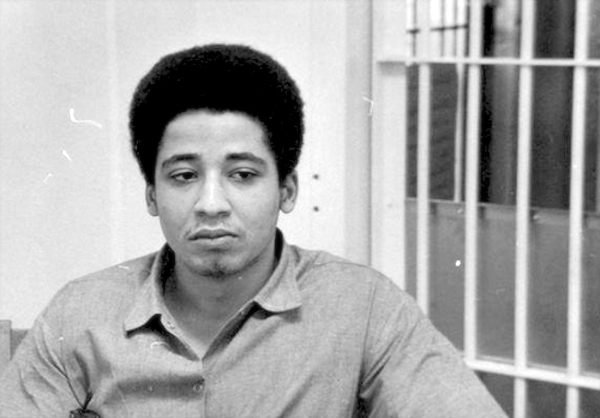August is an especially significant month in Black history. It’s a time of birth and death, revolution and tragedy. It’s the month of Nat Turner’s rebellion, the March on Washington, and the births of Marcus Garvey and Fred Hampton. It’s also the month that the first African slaves arrived in the colonies, the Fugitive Slave Law Convention, and the death of W.E.B. du Bois.
To most, the death of George Jackson hardly registers among the other major August events in Black history. But it was his murder that launched Black August, a month-long remembrance of Black leaders slain for their activism.
George Jackson was an activist who co-founded the Black Guerilla Family in 1966 at San Quentin State Prison in California. Its purpose was to promote Black power, maintain dignity for incarcerated peoples and overthrow the U.S. government. Jackson founded the group alongside fellow inmates George “Big Jake’ Lewis and W.L. Nolen while serving a life sentence for armed robbery.
On August 21, 1971, Jackson smuggled a handgun into San Quentin to launch an escape. After overpowering correctional officers with the help of other inmates, guards fatally shot Jackson when he escaped to the prison yard. Inmates David Johnson, Johnny Spain, Hugo Pinell were convicted of murdering officers while Willie Tate, Fleeta Drumgo, and Luis Talamantez were acquitted for their part in the escape attempt.
Those are the events that led to the observance of Black August. Sundiata Tate describes the month as a time to “embrace the principles of unity, self-sacrifice, political education, physical training and resistance.”
The work for which Black August stands still continues today – from decarceration movements to addressing world leaders about the continued oppression of Black communities everywhere. While these efforts are illustrative of how much has truly changed since the end of the civil rights movement, the holiday’s relative obscurity tells us a lot too.
Black August is not a terribly well-known event. George Jackson is not a famous Black activist. His work doesn’t get any space in our history books. And even still, some are trying to further erode what students are being taught about Black history.
The nationwide crusade against “critical race theory,” led by those who can’t properly define it, is a testament to the widespread erasure of Black history. Lawmakers in dozens of states are campaigning against teachers who expound the idea that our country’s systems discriminate against some of its citizens. It does, by the way. Recent events highlight how adamantly our leaders try to deny that systemic racism exists.
In elementary school, we’re taught about the glory of the American Revolution but not the countless activists murdered as George Jackson was. We’re implicitly told that sacrificing one’s life for our country is noble as long as it’s for a mostly white cause. Doing so for the liberation of Black people won’t get your name in textbooks. Rather, lawmakers may campaign against the very explanation of your work. This disparity is shameful, wrong, and disgusting, but not surprising.
Black August is a time to remember fallen activists in the fight for equality. Let’s make sure we do that this month and every other.

